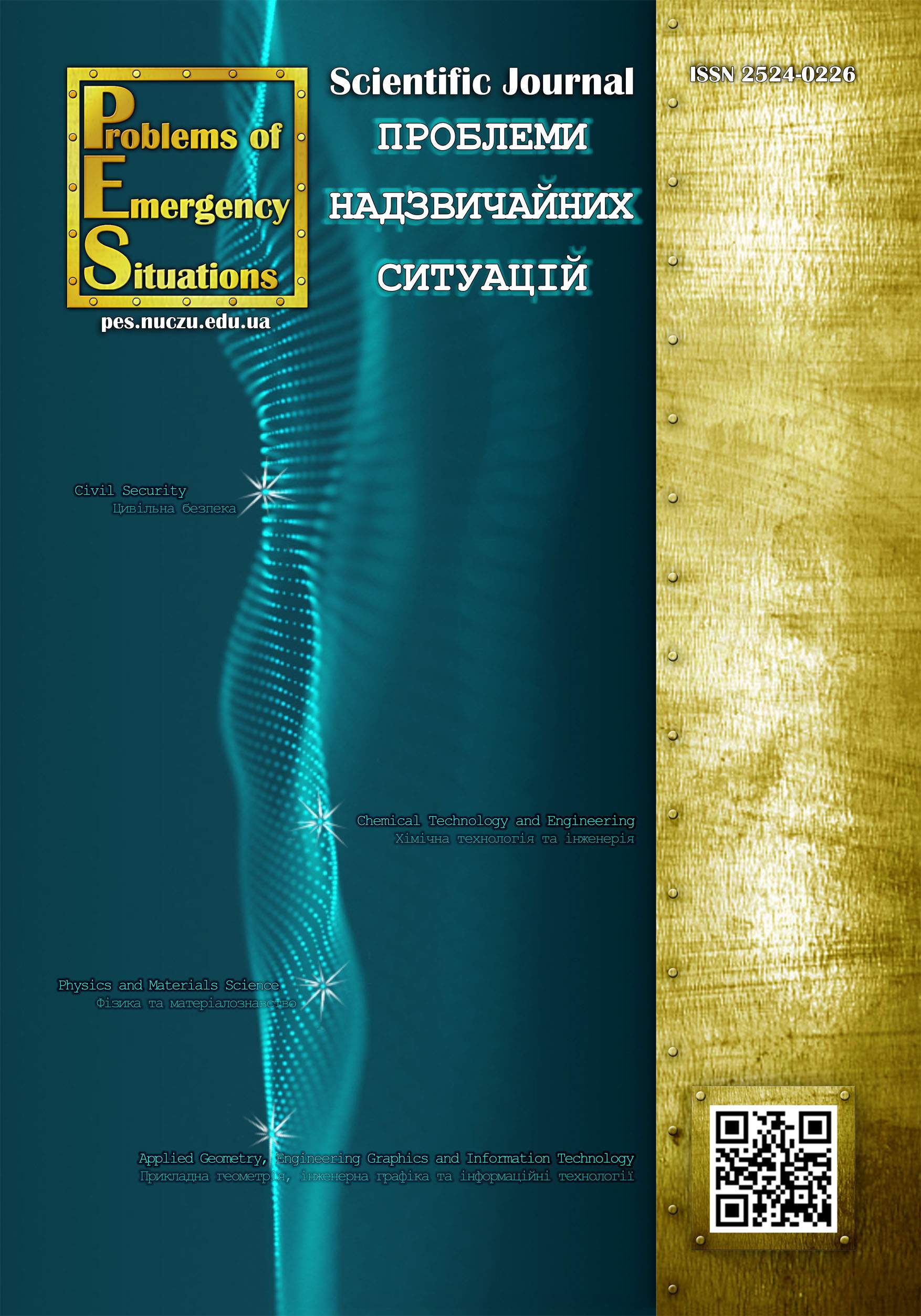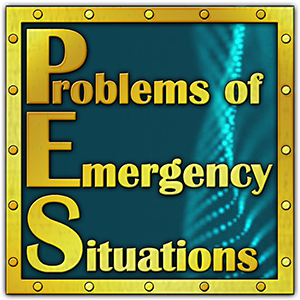Comparative analysis of rescue operations to rescue a victims at a height
Beliuchenko Dmytro
National University of Civil Defenсe of Ukraine
https://orcid.org/0000-0001-7782-2019
Maksymov Andriy
National University of Civil Defenсe of Ukraine
http://orcid.org/0000-0001-7015-090X
Strelets Victor
National University of Civil Defenсe of Ukraine
http://orcid.org/0000-0001-5992-1195
Burmenko Oleksandr
National University of Civil Defenсe of Ukraine
http://orcid.org/0000-0002-5014-2678
DOI: https://doi.org/10.52363/2524-0226-2023-38-6
Keywords: special equipment, safety equipment, high-altitude rescue operations, rescue climber
Аnnotation
A quantitative comparative assessment of the influence of the size of the rescue teams, as well as the level of preparedness of the rescuers-climbers on the time of implementation of various options for rescuing the victim by evacuation in an unsupported space, was carried out, which will contribute to solving the problem of reducing the time of rescue work at height without reducing the level of safety as a personnel rescue teams, as well as victims who require evacuation in an unsupported space. A comparative assessment of various options for height rescue operations was carried out, taking into account both the level of training of rescuers and the completeness of the rescue unit. with the help of both a spinal immobilization shield and rescue stretchers by the personnel of rescuers of the basic and initial level of training in groups of full and part-time staff in accordance with the criteria of Shapiro-Wilkie, Fisher and Student. It is shown that the time distribution of height rescue operations according to the options considered with a significance level of =0,05 can be considered normal. At the same time, the mathematical expectation of the time of height rescue work at height for the specified options differs significantly not only depending on the technical capabilities of the special equipment and safety devices used, but also on the level of preparedness of the rescuer-climber and the size of the rescue team. These properties must be taken into account when drawing up methodological recommendations for performing rescue work at height, as well as professional training of a rescuer-climber. The reliability of the obtained estimates was confirmed by comparison with the results of research conducted in 2018–2019.
References
- Zare, S., Hemmatjo, R. (2018). Comparison of the effect of typical firefighting activities, live fire drills and rescue operations at height on firefighters’ physiological responses and cognitive function. Ergonomics, 61(10), 1–26. doi: 10.1080/00140139.2018.1484524
- Roseane, M., Shalimar, G., Patrícia, K. (2022). Knowledge in critical events: Know-how at work of emerging country firefighters. International Journal of Disaster Risk Reduction, 81, 54–79. doi: 10.1016/j.ijdrr.2022.103294
- The Importance of a Working at Height Rescue Plan. Available at: https://humanfocus.co.uk/blog/the-importance-of-a-working-at-height-rescue-plan/
- Selman, J., Spickett, J., Jansz, J., Mullins, B. (2019). Confined space rescue: A proposed procedure to reduce the risks. Safety Science, 113, 78–90. doi: 10.1016/j.ssci.2018.11.017
- Gong, J., Yaolin, L. (2017). Evaluating the Evacuation and Rescue Capabilities of Urban Open Space from a Land Use Perspective: A Case Study in Wuhan, China. International Journal of Geo-Information, 6(7), 227–243. doi: org/10.3390/ijgi6070227
- Seven рarts of an in-house rescue plan for working at heights. Available at: https://www.ishn.com/articles/113696-7-parts-of-an-in-house-rescue-plan-for-working-at-heights
- Milanі, M., Roveri, G., Falla, M. (2022). Occupational Accidents Among Search and Rescue Providers During Mountain Rescue Operations and Training Events. Emergency medical services brief research report, 81, 699–705. doi: org/10.1016/j.annemergmed.2022.12.015
- Safe Work at Height. Available at: https://www.ukfrs.com/sites/defaHeight.pdf
- Working at height Rules for the use of work equipment intended for temporary work at height. Available at: https://oshwiki.osha.europa.eu/en/themes/working-height
- When working at heights, workers need a fall rescue plan. Available at: https://weeklysafety.com/blog/fall-rescue
- Training is key when working at height. Available at: https://www.ishn.com/articles/112347-training-is-key-when-working-at-height
- Hassanain, M. A. (2009). On the challenges of evacuation and rescue opera-tions in high‐rise buildings. Structural Survey, 27, 109–118. doi: 10.1108/02630800910956443
- Maksymov, A., Kovalov, P., Strelec, V. (2019). Comparative analysis of the rescue of the victim with the help of stretcher rescue flame retardant. Fire Safety Prob-lems, 45, 108-116. Available at: https://nuczu.edu.ua/sciencearchive/ProblemsOfFireSafety/vol45/Maksimov.pdf
- Statystychne opratsiuvannia danykh. Katehorii vidkhylennia vid normalnoho rozpodilu [Statistical interpretation of data – Tests for departure from the normal distribution]. (2009). DSTU ISO 5479:2009(ISO 5479:1997, IDT) from 1stJule 2011. Kyiv: Derzhstandart Ukrainy [in Ukrainian]
- Mitropol’skij, A. (1971). Tekhnika statystychnykh obchyslen [The technique of statistical calculations]. Nauka
- Khalafyan, A. (2007). STATISTIСA 6 Statystychnyi analiz danykh. Binom-Press














